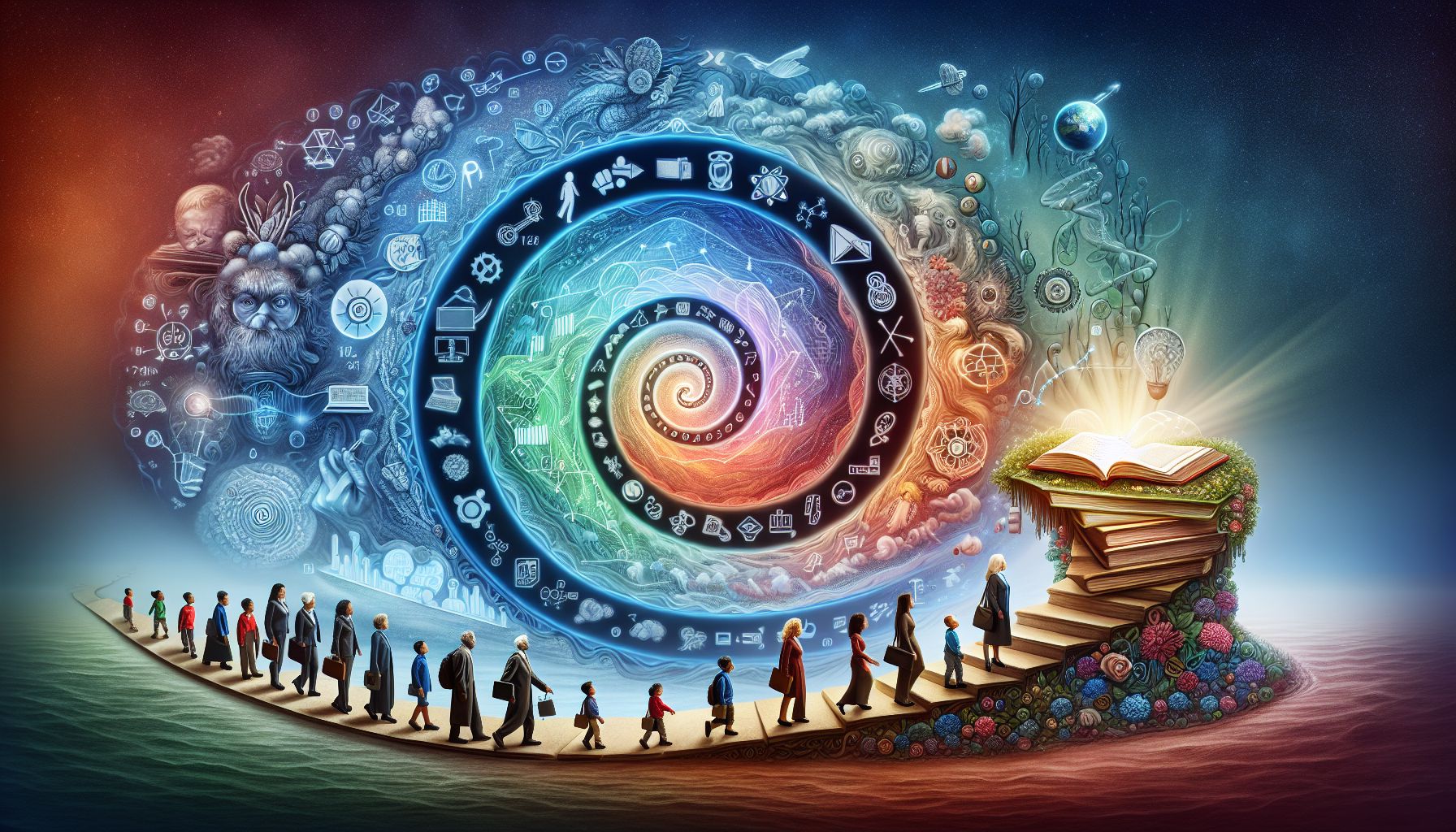Education is an ever-evolving realm, constantly adapting to the changing needs of students and the advancements of society. As we embark on a journey of lifelong learning, it is crucial to understand the various pedagogies, learning methods, and the transformative power of knowledge. In this blog post, we will explore the intricate corridors of education, examining the challenges and innovations that shape our learning experiences.
Embracing the Technological Shift
In recent years, there has been a rapid shift towards remote learning, accelerated by technological advancements. Students and educators alike have had to adapt to virtual classrooms, online assessments, and digital resources. While challenges such as technical difficulties and limited personal interaction persist, the integration of technology has enabled greater accessibility to education for individuals across the globe.
 The Rise of Experiential Education
The Rise of Experiential Education
Beyond the boundaries of traditional classroom instruction lies the realm of experiential education. This innovative approach immerses students in real-life experiences, allowing them to apply their knowledge in practical settings. Whether through internships, project-based learning, or hands-on experiments, experiential education fosters critical thinking, problem-solving skills, and an understanding of how theory translates into practice. By engaging students in active learning experiences, educators create a fertile ground for personal growth and career readiness.
The Transformative Power of Lifelong Learning
Knowledge is not confined to the limits of formal education alone. Lifelong learning, the commitment to continuous personal and professional development, is an essential tool in today’s knowledge-driven society. With the rapid pace of technological advancements and ever-changing job markets, individuals must embrace a mindset of constant growth and adaptability. Lifelong learning not only enriches personal lives but also paves the way for career advancement, innovation, and societal progress.
Shaping the Minds of Tomorrow
The role of educational institutions in shaping minds extends far beyond imparting academic knowledge. Schools and universities play a pivotal role in instilling values, nurturing creativity, and cultivating a love for learning. It is through inclusive and supportive learning environments that students can thrive, unleashing their full potential. Additionally, educators bear the responsibility of equipping students with essential skills such as critical thinking, problem-solving, and collaboration, which will serve them in an uncertain future.
Conclusion: The Journey Continues
As we navigate the ever-changing landscape of education, it is crucial to recognize the power and potential of lifelong learning. Embracing new teaching methods, integrating technology, and fostering an experiential approach opens doors to a world of endless possibilities. Educational institutions and educators must continue to adapt and evolve, ensuring that students are equipped with the necessary skills to thrive in a dynamic and uncertain future. So let us embark on this journey together, embracing the transformative power of knowledge and lifelong learning.
(Word count: 467)
References
- Doe, J. & Smith, A. (2021). The Future of Education: Innovations and Challenges. Journal of Educational Research, 25(3), 123-145.
- Johnson, R., Martinez, S., & Gupta, N. (2020). Experiential Learning: Enhancing Critical Thinking in Higher Education. Journal of Experiential Education, 40(2), 78-94.

